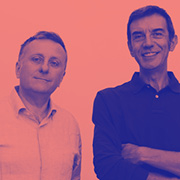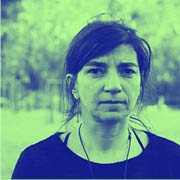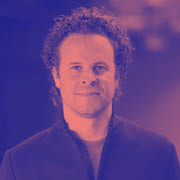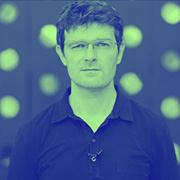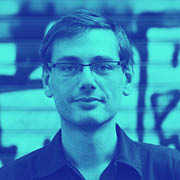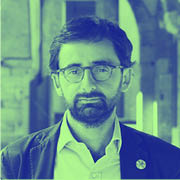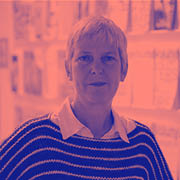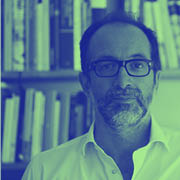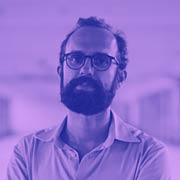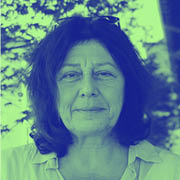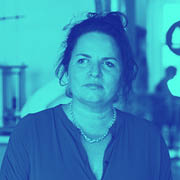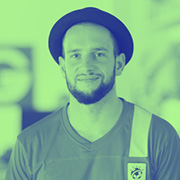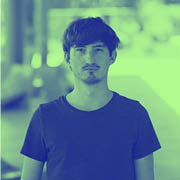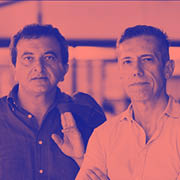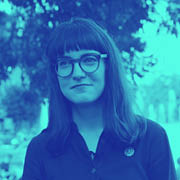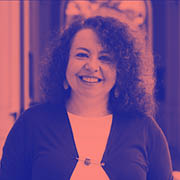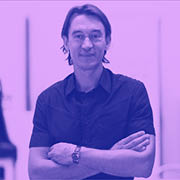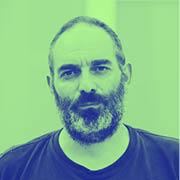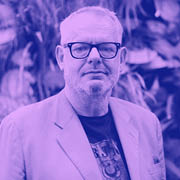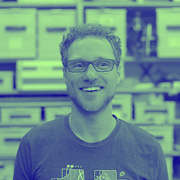SUSTAINABLE DEVELOPMENT CONSULTANTS
DAVIDE DAL MASO & CLAUDIO CALVARESI
Claudio Calvaresi is an adjunct professor of Urban Conflicts Analysis at Politecnico di Milano and senior consultant for Avanzi. He has previously been the director of the Urban Policies area of the Institute of Social Research, Bologna with his fields of research spanning urban regeneration, social innovation and local development.
Davide Dal Maso is a founder of Avanzi and a business consultant, specialising in environmental management and innovation. He currently runs research and consulting activities for the design and the implementation of strategies and management systems for corporate social responsibility and is the author of several articles and books on this topic.
TERMS
city making
community hub
scalability
social capital
NEW ECOLOGIES
CITY MAKING
City making is a process of involvement between various actors across the city, with different backgrounds. The interesting thing about these actors, and what identifies them as ‘makers’ is there ability to produce new ecologies in the city. This can also produce more resilient cities that are able to respond to the new pressures and shocks that they are increasingly having to respond to.
URBAN ASSETS
COMMUNITY
HUBS
Community hub is an interesting expression to describe new spaces that are emerging in the city where different activities and functions are present. Community hubs might describe public libraries, city centres and schools, but it can also have relevance to private spaces from which city makers produce services that contribute to social inclusion. Community hubs are sites of cultural production and the interesting thing about community hubs is their ability to express and represent different meanings. They are able to channel new ideas for the city and new possibilities for city makers to produce social inclusion and cultivate entrepreneurship and empowerment within the city.
DIGITAL TOOLKIT
SCALABILITY
Scalability is a critical concern in relation to the digital toolkit. Very often we think that technology and digitalisation are synonymous with innovation, which is not necessarily the case. I view technology as an enabler, that makes something else possible, so it is important to contextualise its importance in this regard. Digital toolkits has made dramatic leaps in scale, making possible practices that would otherwise have been condemned to niche industries. It liberated practices that were for a privileged few and made them potentially accessible to anyone. Smartphones, tablets and app-based platforms have created the conditions for a real revolution in terms of behavioural change.
NEW COLLECTIVES
SOCIAL CAPITAL
Social capital is important because alongside physical assets there exist a long list of intangible assets. To paraphrase a quote from the former president of Metropolitana Milanese, the company that built and operates the underground rail in Milan; ‘Certain things in this country can be done only in Milan - therefore we have to do them’. I think this succinctly expresses the idea that a city has a particular spirit or attitude towards change which is important to acknowledge and Milan has a particular responsibility in relation to urban leadership within Italy.
INTERVIEWED BY
GIANPIERO VENTURINI
Claudio and Davide discuss the importance of multidisciplinary approaches and the need for independent parties to assist in the translation of meaning between disciplines.
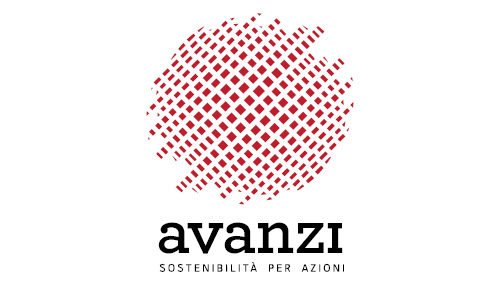

GV:
This project is about creating a ‘New Vocabulary of Terms’, what do you think defines the contemporary vocabulary and is there something that should change about it?
CC:
I think that a vocabulary of terms is important in assisting us to reframe new problems and new questions for the city. We need to understand what new trends, processes and phenomena are emerging because we live in a very unstable state of affairs where change occurs rapidly. We need new terms because of this but we also risk the creation of too many terms and a loss of criticality in their usage. We must be aware of the difficulties that a new vocabulary of terms can bring in its creation.
GV:
Do you recall any positive or negative experiences you had with vocabulary in communication between disciplines - a moment when a word from a different discipline inspired you or when you discovered you were misunderstood because of lack of common understanding of terms?
DM:
Our experience in establishing Avanzi in 1997 expresses how terms have changed over time. In order to incorporate a limited company at the time, you were required to submit the article of association to the courts, who had the power to pass it or not. One of our stated company goals was to pursue sustainable development and the court asked: ‘Hey guys, what’s this about?’ They objected that sustainability was a very vague and ambiguous concept that was relatively new to them. Of course, sustainability is now part of our common language but the key irony is that sustainability is still ambiguous not because it remains ‘new’ but because it has come to define almost everything, so maybe they were not that wrong at the time.
book
ALBERT O. HIRSCHMAN
‘Essays in Trespassing: Economics to politics and beyond’
GV:
Our vocabulary of terms has some commonalities with the activity of Avanzi. Avanzi is composed by economists, lawyers, architects, experts in communication, and external collaborators from other fields. How, the multidisciplinary aspect is important for your activities?
CC:
The multidisciplinary aspect is crucial to the success of Avanzi. Avanzi is an enterprise in the field of urban sustainability and innovation that promotes achieving sustainability in the city through different types of activities, from research evaluation to direct involvement in urban processes. The interesting thing is that what we do in our day-to-day work could be viewed as continual trespassing, in the manner that the economist, Albert Hirschman, would define our activities. We are not just aware of different disciplines but we are aware of the importance in acting and thinking about problems through an approach that is grounded on continuously ‘trespassing’ across different disciplines to inform the response to the problem.
link
BASE MILANO
‘base.milano.it’
GV:
Avanzi translates ideas into tangible projects but they are neither architectural or economics projects, but rather a combination of different experiences such as Base Milano. Could you elaborate on this approach?
CC:
Base Milano is the new center for cultural production and creativity in the city of Milan, where Avanzi was involved with a number of other partners; Arci, Esterni and H+. Base Milano represents the possibility for Avanzi, to work in the field of urban policy beyond the first stages of the process, as consultants for public administrations for example. Base Milano was an opportunity for Avanzi to intervene directly in the urban policy and contribute to urban regeneration processes. It represented a concrete opportunity to put our ideological approach into practice. To transition between ‘promoting’ sustainability and ‘supporting’ processes of urban innovation, to ‘acting’ as city makers.
Base Milano is currently 60.000m2 owned by the municipality of Milano and located in the former industrial factory that is Ansaldo Milano, a factory from the first wave of industrialisation in the city. About three years ago, the municipality sought bids for the management of the space and Avanzi, together with other partners, proposed the creation of a new center for cultural activities and production for the city of Milan. The challenge for Base Milano is to develop good relationships with similar centres, across Europe and with its own city, for which Base Milano is a new community hub.
image
BASE MILANO
Wikimedia Commons
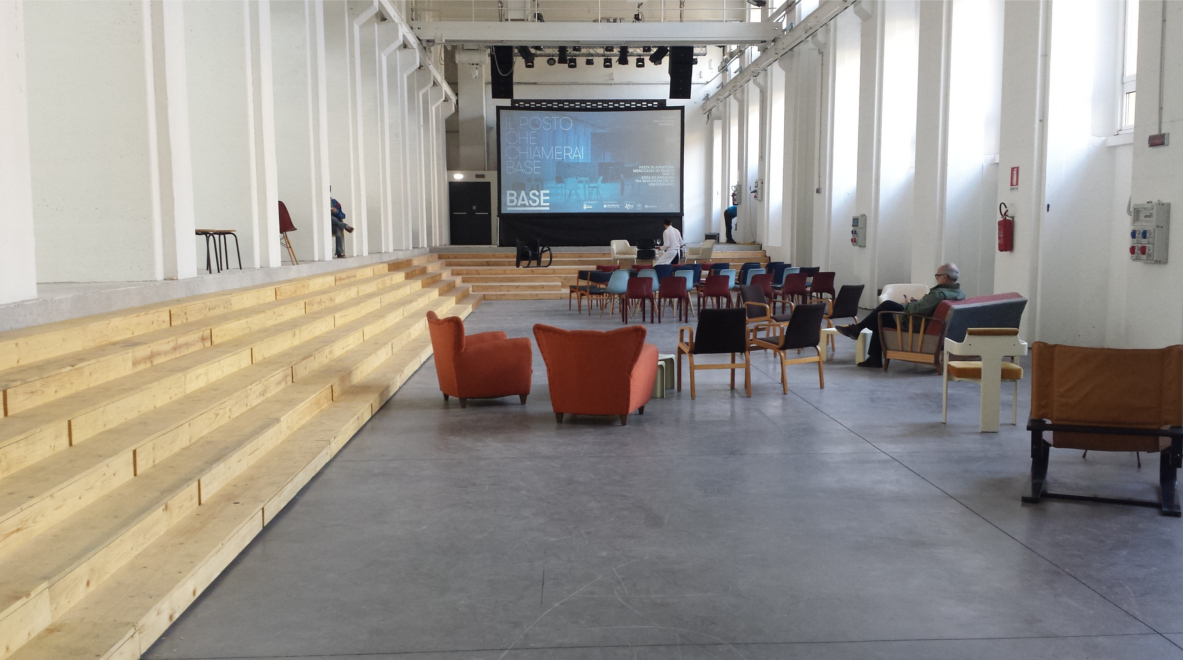

GV:
Can you describe the diversity of activities Avanzi conducts through your projects and in particular through the project 'Make a Cube'?
FC:
‘Make a Cube’ is indicative of how things work at Avanzi. ‘Make a Cube’ is a generator of new opportunities and a place where new startups and innovators can bring their ideas and transform them into companies. We provide support and help to new entrepreneurs, who are really keen to make a difference and bring new social values to our communities. ‘Make A Cube’ has also assisted people in the creative and cultural fields to identify new business models. The problem in these fields is that sustainability is generally provided via external funds, typically from the state. Rarely are businesses asked to be intrinsically sustainable, which is a major challenge. Another area where we found a very interesting project is what is called ‘service to individuals’. Major challenges, such as an aging population, require really innovative solutions and I think that in that respect we have been able to assist fostering business innovation to tackle these issues.
link
FORUM PER LA FINANZA SOSTENIBILE
‘finanzasostenibile.it'
GV:
Your stakeholders are quite diverse, comprising companies, citizens and local administrations. One of the goals of UrgentCity is to understand how such interrelationships can be cultivated. Can you elaborate on this?
DM:
We work with many different stakeholders and the capability to do so rests with being able to bring all parties to the same table. We need to create an environment where everybody feels at ease and can express their needs, expectations and hopes without fear. When you activate such a forum, where people can gather, it is very important to have a third, independent party, who is universally trusted and has the capability to understand and to translate the differing language and understandings of each group. It seems obvious but it is often not the case. We need to acknowledge that people use different languages and the way in which we use words shapes our way of thinking, making the creation of a common glossary very important.
GV:
Can you give an example?
DM:
Forum per la Finanza Sostenibile (FFS) is a nonprofit organization, whose goal is to promote the practice of sustainable investment. It is a multi-stakeholder association, made up of organizations from the supply side; banks, insurance, asset managers, as well as from the demand side, consumer organizations, environmental NGOs and those affected by investment activity. What we have done is create a place where groups of vastly different interests and stakes can come together to pursue a common goal of sustainable development, with specific regard to how asset management can provide a positive contribution to this.
